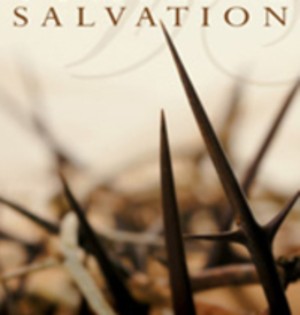You have seen the commercials I'm sure. The family spending time together, cuddled close and laughing. It really makes people want to have what they have. And then it comes...just call a number and ask for a copy of the Book of Mormon and it will be sent to you free of charge. It can give you the same closeness as these people, right?
Well, the Book of Mormon is the foundation of the LDS scriptures. It is, according to Joseph Smith, "the most correct of any book on earth, and the keystones of our religion, and a man would get nearer to God by abiding by its precepts, than any other book." It is also claimed by members of the LDS to be the "fulness of the everlasting gospel" and "another Testament of Jesus Christ." In tomorrow's post I will review the story told between its covers. I will briefly summarize to tell you that it is a story of a people living in the Americas and of Jesus appearing to these inhabitants following his resurrection. It contains the following books, in a similar layout as the Bible: 1 Nephi, 2 Nephi, Jacob, Enos, Jarom, Omni, The Words of Mormon, Mosiah, Alma, Helaman, 3 Nephi, 4 Nephi, Mormon, Ether, & Moroni.
It would be unusual if you were visited by an LDS missionary and were not asked to pray to receive word from God that the Book of Mormon is true. They receive a "testimony," also called a "burning in their bosom" that testifies to them that the book is true.
The Book of Mormon was only the beginning of the documents mandating the doctrines followed by the congregations.
Another book used as one of their official cannons is called the Pearl of Great Price, which is composed of the following books: Moses, Abraham, Joseph Smith - Matthew, Joseph Smith - History, and the Articles of Faith.
In addition to these tomes, they have the Doctrine and Covenants. This book has the following subtitle:
CONTAINING REVELATIONS GIVEN TO
JOSEPH SMITH, THE PROPHET
WITH SOME ADDITIONS BY HIS SUCCESSORS
IN THE PRESIDENCY OF THE CHURCH
JOSEPH SMITH, THE PROPHET
WITH SOME ADDITIONS BY HIS SUCCESSORS
IN THE PRESIDENCY OF THE CHURCH
In other words, these are the declarations and prophecies of the current and/or prior prophets of the LDS church.
The LDS church also holds dear the KJV Bible, "as far as it is translated correctly" (Articles of Faith #8). They will tell you that the Bible has been corrupted (we'll discuss during section 2.6) and the Book of Mormon is the complete restoration of the true gospel. Joseph Smith even has added text to the KJV and entitled it the "Inspired Version," or the "Joseph Smith Translation (JST)" claiming that God inspired him to correct the current version to correct the errors from omissions and changes past. The LDS church will tell you that various scriptures predict the Book of Mormon such as Isaiah 29:1-4, Isaiah 29:11-12, and Ezekiel 37:16-17. We will now look at those Biblical accounts in detail
********************
Isaiah 29:1-4 is used to defend the Book of Mormon because it was "out of the ground," since it was found in a hillside. However, it is understood by biblical scholars that the "Ariel" of this text is Jerusalem--the city where David dwelt, just as stated by in the verses. This completely fits in the context of what Isaiah is talking about. It is a prophecy that Jerusalem will be "brought down," or destroyed...or buried in another sense. From this low place, the city would be crying out from its own grave. Please note also that the use of "familiar spirit" in this phrase does not mean what it seems to in our modern language. We would easily admit that "familiar" would mean "known" or "common" but in the Bible, the term "familiar spirit" was used many times--and every time it described a type of medium or occultism. Familiar spirits of the Bible were those who dealt with witchcraft or dark magic. None of the times it is used is it used favorably.
Isaiah 29: 11-12 is used by the LDS church to justify the existence of the Book of Mormon claiming to be the sealed book of Isaiah's prophecy. Does the Bible support this? No. Note that Isaiah does not say that it is a book, but that it is a vision as a book that is sealed, meaning that is was no more useful to the people than a book that they could not read.
Ezekiel 37:16-17 tells the story of two sticks, one of Judah and one of Joseph. The LDS church claims that the book of Judah was the Israelites and the stick of Joseph was that of the originators of the Book of Mormon. This would be a good argument if a concise explanation for these two sticks did not already exist. At the time that Ezekiel was writing this, the people of Israel were divided into two kingdoms...Judah was the southern kingdom and Israel (sometimes called Ephraim who was one of Joseph's sons and therefore, of his lineage) was the northern kingdom. These two kingdoms were to be joined together, just as the Ezekiel prophecy was telling.
You can find the JST of the LDS King James Bible here. You can find the changes and/or additions noted clearly. One of which to note is Genesis 50 where Joseph Smith added a prophecy of himself to verses 32-33 (yes, your Bible stops at verse 26). Obviously, God spoke strongly against anyone adding to His Word in many places Deuteronomy 4:2, Deut 12:32, Deut 18:20, Proverbs 30:6, Jeremiah 26:2, as well as Revelation 22:18. Of course they feel that the Bible was previously corrupted and that Joseph Smith just restored what was lost at the instruction of God. Note that Jesus Himself said, "Verily I say unto you, Till heaven and earth pass, one jot or one tittle shall in no wise pass from the law, till all be fulfilled." (Matthew 5:18)
In addition to these prophecies, lets examine what the Bible says about praying about the Book of Mormon...or any other book. When a Mormon asks you to pray to see if the Book of Mormon is true, ask if you are required to pray to know if any other tenets of faith are true. Do you pray about things that the Bible has already established a command for? God told us through Paul in Galatians 1:6-9 that, "I marvel that ye are so soon removed from him that called you into the grace of Christ unto another gospel: Which is not another; but there be some that trouble you, and would pervert the gospel of Christ. But though we, or an angel from heaven, preach any other gospel unto you than that which we have preached unto you, let him be accursed. As we said before, so say I now again, if any man preach any other gospel unto you than that ye have received, let him be accursed." See? I don't have to pray about something God has already established a standard for. You can supplement your argument using 1 Thessalonians 5:21 where we are told to "test" all things (not "pray about"), and further support of this is given in Acts 17:11-12 when the Bereans are praised for measuring the message they were hearing against the Bible, not against prayer or their own emotional reactions to their prayers.
********************
The LDS church is really good at reading what they want to into the Bible. They can see within these Biblical scriptures language that seems to uphold their faith, but they are simply not reading what is actually said in the Bible. If you could take away from them what they have told a verse means and just let them read it at face value, they would never translate it to mean what they think it does. They are reading things that simply are not there.
*********************
Ask your LDS associates these questions:
- If the Book of Mormon is the "fulness of the everlasting gospel," why would any additional books be needed (Pearl of Great Price, Doctrine & Covenants)?
- In reference to Isaiah 29:1-4, were you aware that the phrase "familiar spirit" found in the Old Testament always referred to a spiritist or the occult?
- Did you know that in Deuteronomy 18:9-12 that God condemns anyone who relates to familiar spirits? How does this make you feel about your church justifying your faith with familiar spirits?
- Concerning the two sticks--please read Ezekiel 37:22. Does that not define the two sticks as the two kingdoms of Israel? Didn't this prophecy come true as defined in verse 22 during the 1940s?
- Do you find it a bit odd that Joseph Smith inserted a passage into the KJV that predicted his own coming?
- Do you find it odd that the exact "missing" elements from the Bible were those that exactly supported the teachings of Joseph Smith? Were there not some surprises that were "taken out"?
- How do you reconcile Jesus' statements in Matthew 5:18 ("Verily I say unto you, Till heaven and earth pass, one jot or one tittle shall in no wise pass from the law, till all be fulfilled.") and Matthew 24:35 ("Heaven and earth shall pass away, but my words shall not pass away") with the idea of Joseph Smith altering the text of the Bible?
- If a Muslim asked you to pray about the truthfulness of the Koran, would you do so? Why not?
- If you prayed about the Book of Mormon and got a "yes," but I prayed about the Book of Mormon with the same sincerity and got a "no," what does that mean? Would God give us answers? Does this mean that this is not a reliable way to test scripture?
- What does Jeremiah 17:9 tell us about man's heart? (The heart is deceitful above all things, and desperately wicked: who can know it?) Can you therefore use it as a reliable source of evidence?
Study of the LDS Church - 2.4 The Book of Mormon - The Basic Story






3 comments:
Like I said before, it's hard for me to keep all this straight. I do find it interesting the way they get around the clear warning concerning adding to God's Word, by saying they are filling in what was lost.
God's law and God's word are unchangeable and everlasting, but that doesn't mean the scriptures can never change, or that they have never changed since their original recording. The scriptures are an assortment of symbols (letters), which are organized to represent words, which are organized to convey meaning, which meanings have been printed and handed down and translated numerous times over the centuries. In the best case scenario, with the countless humans who have participated in those translations, there is no possible way that our current day KJV is 100% true and accurate to the original text (let alone true to the original word and law spoken by God). Am I saying that God's word isn't true? Not at all. I am suggesting that, even though the written scriptures have infinite value for us, maybe they aren't a perfect record of God's word and God's law. God's word and law are the eternal principles we are trying to follow.....the scriptures are humans' imperfect record of that word and law.
Looking at the quote, "Heaven and earth shall pass away, but my words shall not pass away", we can clearly see that God's word exists eternally regardless of what happens to the written scriptures. The written scriptures are clearly a corruptible material (paper, leather, vinyl, etc.), that will pass away when the world passes away.
But God's word and law will continue to exist and govern the universe. Perhaps by then we will have some other way to preserve and communicate God's word. Or maybe we won't need to. :)
Here's an analogy to what I am saying above:
Do we change history by changing the text of a history book? Clearly not. Are there history books that paint a biased or inaccurate picture of what actually happened in the past. I would certainly assume so. History is history, irrespective of what our records say.
Thank you, Ranchumatt, for your comment and your desire to speak what you believe. I am always willing to hear out someone who passionately defends what they believe.
I too agree that regardless of what we read that God and His Word are eternal. However, I disagree that the current Bible is a far cry from its original text. Tune in for today's and Friday's session to find out why!
Thanks for joining us!
Post a Comment